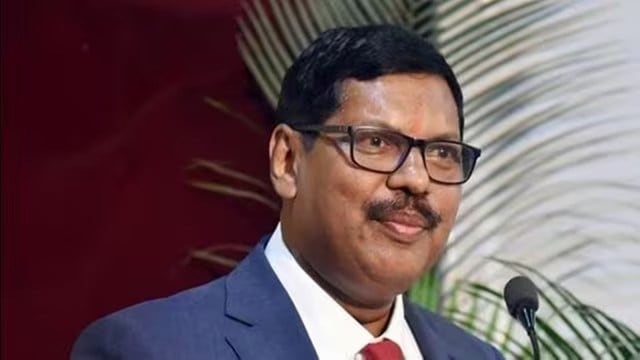
Quite disappointing
Second in line to be CJI, Justice Gavai credits B R Ambedkar for his rise to the top
Supreme Court Justice B R Gavai on Monday credited Dr B R Ambedkar for the Constitution’s transformative impact on citizens.
“It is solely due to Dr B R Ambedkar’s efforts that someone like me, who studied in a semi-slum area at a municipal school could attain this position,” Justice Gavai said.
Justice Gavai is second in line to become the Chief Justice of India in May 2025 and will be only the second CJI from the scheduled caste category. The judge made the remark while speaking at an event marking the 133rd birth anniversary of Ambedkar.
Supreme Court Justice Abhay S Oka also spoke at the event organised by Leaflet, a digital legal news and opinion portal, and the Society for Constitution and Social Democracy.
Talking about Article 32 of the Constitution, which gives citizens the right to move the Supreme Court for violation of fundamental rights, Justice Oka said the Supreme Court is bound to entertain every case seeking a writ under Article 32 of the Constitution in an ideal world.
“We do not live in an ideal world. The Supreme Court is under severe arrears with over 80,000 pending cases,” he said defending the SC for asking petitioners in some cases to seek remedy from high courts instead.
Asked if the judiciary should lay down a rational test on when a petitioner can approach the SC or high courts for violation of fundamental rights, Justice Oka said such suggestions might be counterproductive.
“Take a case where a rich businessman moved the SC citing a violation of Article 19(1)(g) which is the right to practice any profession or to carry on any occupation, trade, or business. Consider his plea by top lawyers against a prisoner in jail bringing his case to the Court. How should the court determine by applying the same rational criteria,” Justice Oka said.
Asked why different benches of the SC take different positions on allowing cases under Article 32, Justice Oka said that plurality of views is not necessarily a problem.
“Diversity is better and not necessarily a problem. A polyvocal court means there are more remedies and fewer restrictions,” he said.
Express News Service – 2024-04-16 20:17